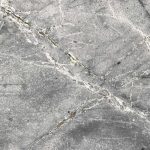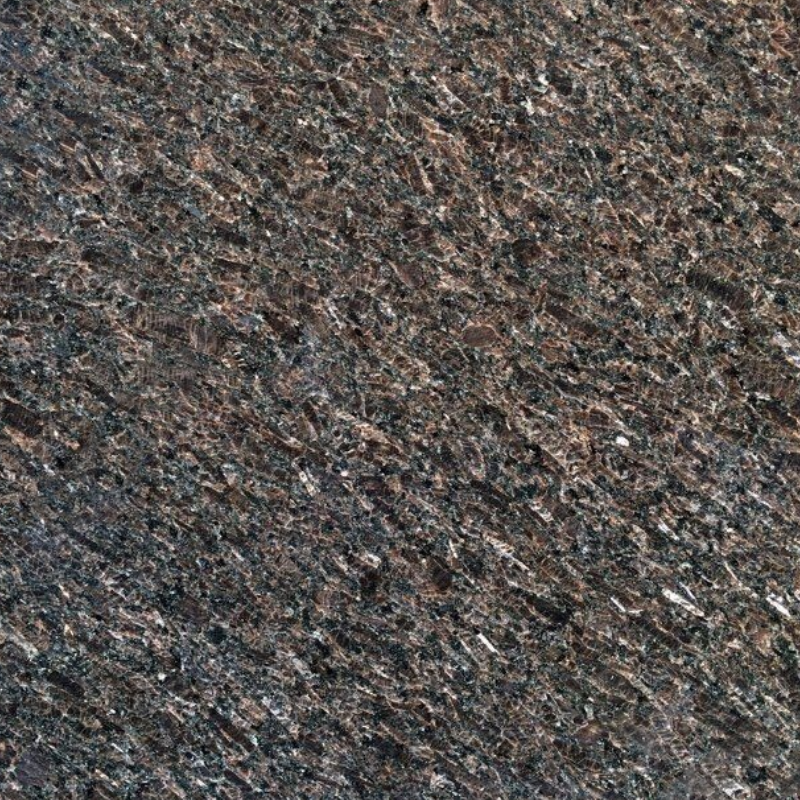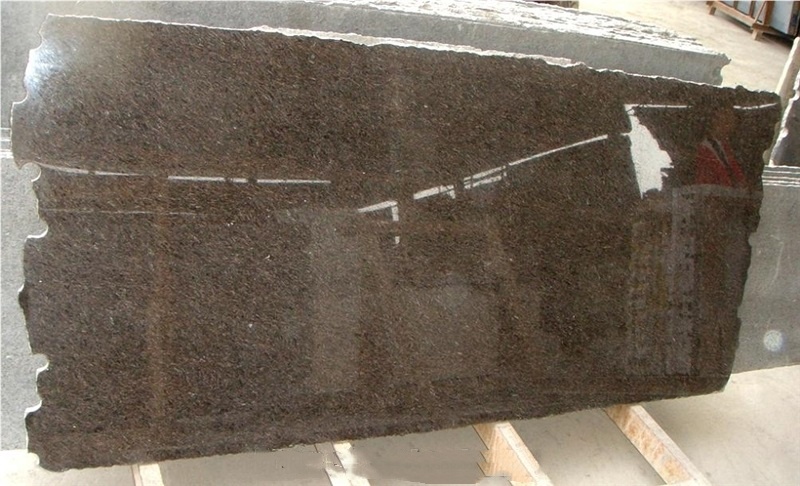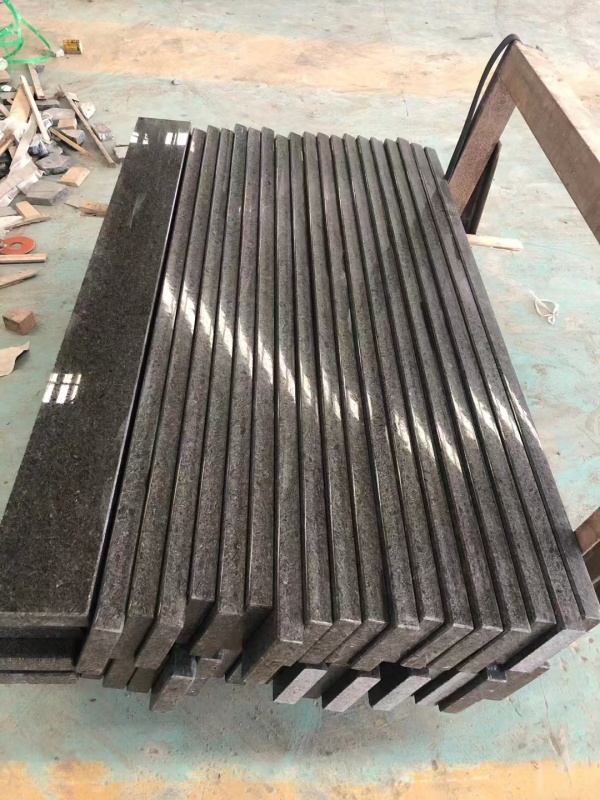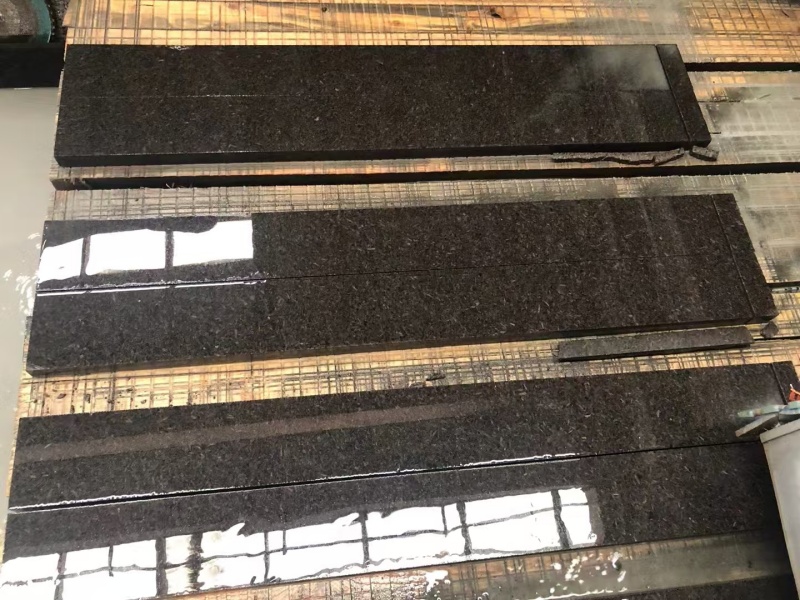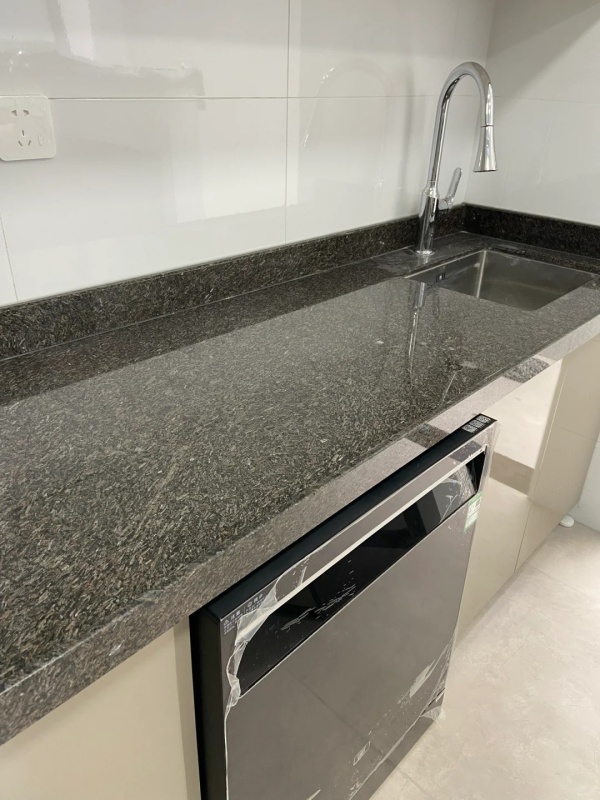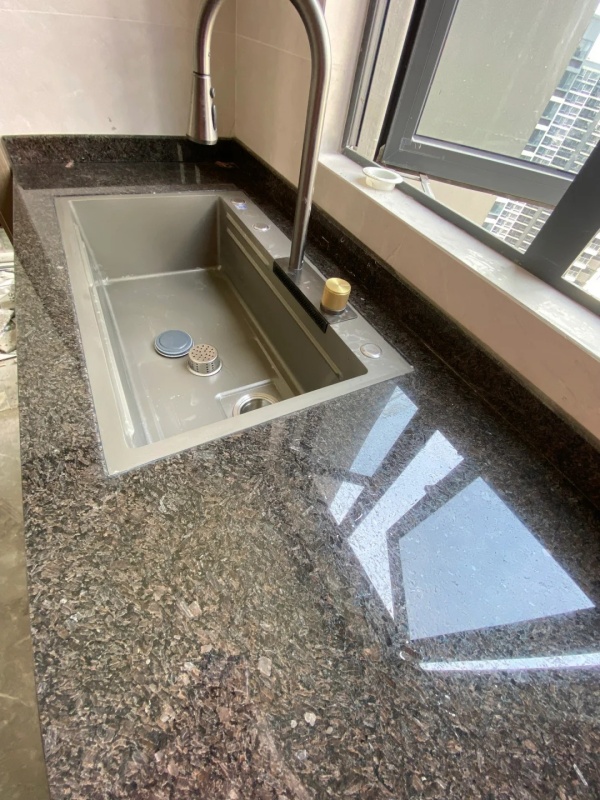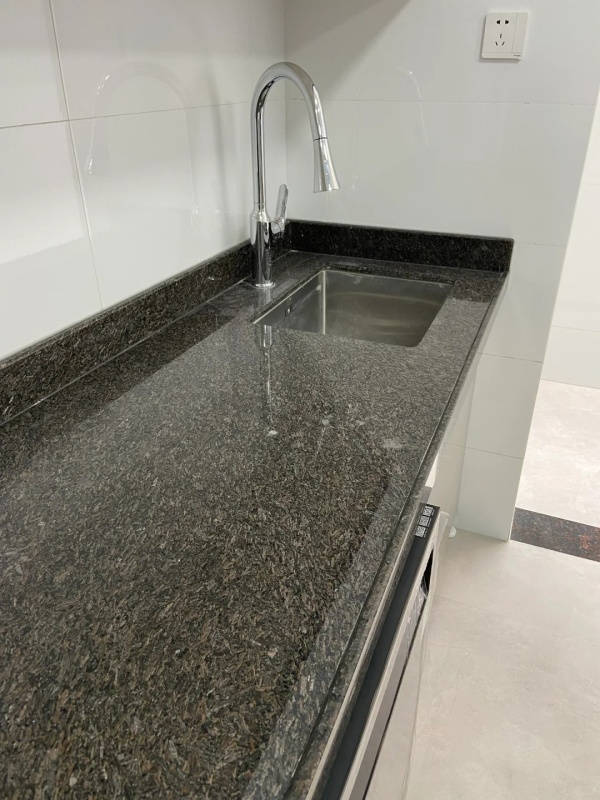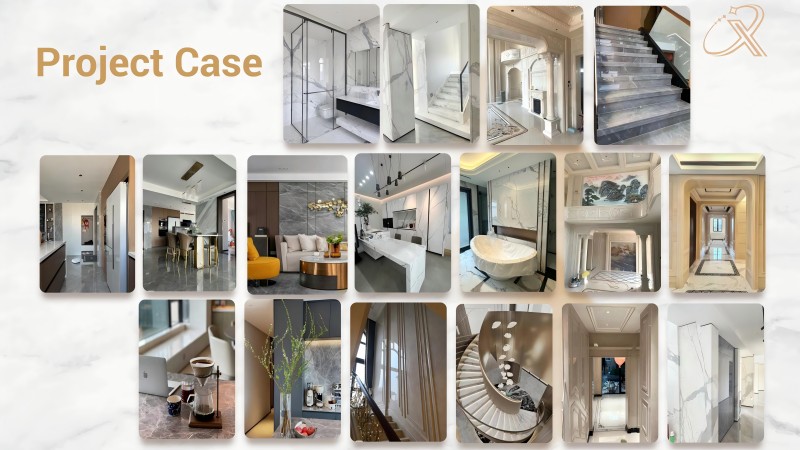Cafe Imperial Granite
Café Imperial Granite is a striking and luxurious natural stone known for its rich colors and bold patterns. It features a unique combination of dark, earthy tones with veining and specks of lighter shades, giving it a visually dynamic appearance. It is often used for high-end countertops, flooring, backsplashes, and other interior applications. Here’s a breakdown of its features and characteristics:
Key Characteristics of Café Imperial Granite:
1. Color and Appearance:
- Base Color: Café Imperial Granite typically has a deep brown or chocolate base with highlights of gold, beige, and tan, giving it a warm, earthy look. It is sometimes interspersed with subtle hints of white or cream, enhancing the natural movement and texture of the stone.
- Veining and Patterns: The stone’s surface often features dramatic veining in gold, beige, or lighter brown hues. This creates an elegant contrast with the darker base tones, adding sophistication and luxury to any design.
- Natural Variation: Like many granites, Café Imperial features natural variations, so no two slabs are exactly the same. These variations contribute to its uniqueness and appeal in high-end applications.
2. Durability:
- Hardness: Granite, including Café Imperial, is one of the hardest natural stones. It ranks 6-7 on the Mohs scale of hardness, making it highly resistant to scratches and abrasions. This quality makes it suitable for heavy-duty applications like kitchen countertops and high-traffic areas.
- Stain Resistance: While granite is less porous than other natural stones (like marble), it is still important to seal the surface to prevent staining. In the case of Café Imperial, spills from acidic liquids like wine, coffee, or citrus juice can cause discoloration if not cleaned up quickly.
- Heat Resistance: Granite is highly resistant to heat, meaning hot pots and pans can be placed on the surface without causing damage. This makes Café Imperial Granite an excellent choice for kitchen countertops and workspaces.
- Impact Resistance: Granite is highly resistant to impact, so Café Imperial can withstand heavy use without chipping or cracking under normal circumstances. However, heavy objects should still be handled with care to avoid potential damage.
How does compare Cafe Imperial Granite to other natural stones in terms of durability?
Café Imperial Granite is a durable and robust natural stone, but its durability can be compared to other natural stones like marble, quartzite, and soapstone. Here’s a breakdown of how Café Imperial Granite compares in terms of durability:
1. Hardness and Scratch Resistance:
- Café Imperial Granite: Granite, including Café Imperial, ranks 6-7 on the Mohs scale of hardness, making it a fairly hard and scratch-resistant stone. Granite is highly durable, meaning it is not easily scratched by knives or everyday utensils, making it perfect for kitchen countertops and high-traffic areas.
- Granite (General): Granite is one of the hardest natural stones and offers excellent resistance to scratching and abrasion.
- Comparison with Other Stones:
- Marble: Marble is much softer than granite, with a hardness of about 3-5 on the Mohs scale. It’s much more susceptible to scratches and wear compared to granite, making it less ideal for high-traffic areas like kitchens.
- Quartzite: Quartzite is harder than granite, with a Mohs hardness of around 7. It is highly scratch-resistant, even more so than granite, making it a top choice for durability in the kitchen and bathroom.
- Soapstone: Soapstone is much softer than both granite and quartzite, with a Mohs hardness of around 2-3. It is prone to scratches and dents, making it less durable than granite.
2. Staining and Porosity:
- Café Imperial Granite: Granite is a relatively low-porosity stone but still needs to be sealed to prevent staining from liquids like wine, oil, or vinegar. Café Imperial Granite has a slightly lower porosity compared to marble and some other stones, but regular sealing is still essential to protect it from absorption.
- Granite (General): Granite is known for being less porous than marble, which makes it relatively resistant to staining, especially after sealing.
- Comparison with Other Stones:
- Marble: Marble is highly porous and more susceptible to staining from liquids like wine, citrus, and oils. Marble needs regular sealing and careful maintenance to prevent stains.
- Quartzite: Quartzite has very low porosity, making it more resistant to staining than granite. It doesn’t absorb liquids as easily and requires less frequent sealing.
- Soapstone: Soapstone is non-porous and does not absorb liquids, so it is more resistant to staining than both granite and marble. However, it is prone to absorbing oils, which can darken the stone’s surface over time, giving it a patina.
3. Heat Resistance:
- Café Imperial Granite: Granite, including Café Imperial, has excellent heat resistance and can withstand high temperatures. You can place hot pots or pans directly on the surface without worrying about damage or cracking, making it ideal for kitchens.
- Granite (General): Granite is one of the most heat-resistant natural stones, which makes it a popular choice for kitchen countertops.
- Comparison with Other Stones:
- Marble: Marble is less heat-resistant than granite. While it can tolerate some heat, it is more prone to thermal shock, which could cause cracks if exposed to sudden temperature changes.
- Quartzite: Quartzite has excellent heat resistance and can handle high temperatures, similar to granite. It’s even more heat-resistant than marble, making it great for kitchen surfaces.
- Soapstone: Soapstone is also highly heat-resistant and can tolerate hot pots and pans without being damaged. It is better at absorbing heat compared to granite, which helps it remain warm for longer periods.
4. Impact Resistance:
- Café Imperial Granite: Granite is a tough and impact-resistant material. It can withstand significant force without cracking or chipping, which is ideal for areas where heavy objects are placed or dropped, such as kitchen countertops.
- Granite (General): Granite is highly resistant to impact, making it suitable for both residential and commercial environments.
- Comparison with Other Stones:
- Marble: Marble is more prone to chipping and cracking under impact than granite. It’s a more fragile stone, especially at the edges, and can break if heavy objects are dropped on it.
- Quartzite: Quartzite is highly impact-resistant, even more so than granite. It can withstand significant force without chipping or cracking, making it a highly durable choice.
- Soapstone: Soapstone is softer and more prone to dents and scratches, but it is relatively resistant to cracking under impact. However, it’s not as tough as granite or quartzite.
5. Maintenance:
- Café Imperial Granite: Granite is relatively low-maintenance compared to softer stones like marble. It requires periodic sealing to prevent staining and should be cleaned with a pH-neutral cleaner to avoid damaging the surface. However, it does not require as much maintenance as marble.
- Granite (General): Granite is known for its relatively low maintenance. It needs to be resealed periodically (every 1-2 years) and cleaned with non-abrasive cleaners.
- Comparison with Other Stones:
- Marble: Marble requires more maintenance due to its porosity and susceptibility to staining and etching. Regular sealing is necessary, and acidic substances must be avoided to prevent damage.
- Quartzite: Quartzite is low-maintenance and only requires sealing periodically. It does not etch or stain as easily as marble and requires less care than both marble and granite.
- Soapstone: Soapstone requires minimal maintenance and does not need sealing. However, it will darken over time due to the natural oils it absorbs, which some people appreciate for its patina, while others may find it undesirable.
6. Longevity:
- Café Imperial Granite: Granite is highly durable and can last for decades when properly cared for. It is resistant to wear and tear, maintaining its aesthetic appeal over time.
- Granite (General): Granite is one of the longest-lasting materials for countertops, floors, and other surfaces. It is highly durable and resistant to environmental damage.
- Comparison with Other Stones:
- Marble: Marble can last a long time with proper care, but it is more prone to signs of wear, scratching, and etching, especially in high-traffic areas.
- Quartzite: Quartzite is one of the most durable natural stones and can last for generations, offering excellent resistance to wear and tear.
- Soapstone: Soapstone can last a long time, but it does require more maintenance and will darken over time due to the oils it absorbs.
Durability Comparison Summary:
| Durability Factor | Café Imperial Granite | Granite | Quartzite | Marble | Soapstone |
|---|---|---|---|---|---|
| Hardness (Mohs scale) | 6-7 (Scratch-resistant) | 6-7 | 7 | 3-5 | 2-3 |
| Porosity (Staining) | Low (needs sealing) | Low | Very Low | High | Very Low |
| Heat Resistance | High (ideal for kitchens) | High | Very High | Moderate | Very High |
| Impact Resistance | High | High | Very High | Moderate | Moderate |
| Maintenance | Moderate (seal periodically) | Low | Low | High | Low |
| Longevity | Very High | Very High | Very High | Moderate | High |
What’s the Application of Cafe Imperial Granite ?
Cafe Imperial Granite a range of high-end interior projects since its beauty and unusual tint are widely appreciated.
1.Cafe Imperial Granite Countertop :Cafe Imperial Granite is often used to create stunning kitchen countertops and bathroom vanity tops. Its striking black color and intricate veining add elegance and sophistication to these spaces.
2.Wall Cladding: As a wall covering,Cafe Imperial Granite can create a focal point in any room. It is used in both residential and commercial settings to enhance the visual appeal of walls.
3.Flooring: While it is less commonly used for flooring compared to harder stones like granite ,Cafe Imperial Granite still be used in areas with light foot traffic, such as bathrooms, entryways, and other interior spaces.
4.Feature Walls: The dramatic veining and color variations of Cafe Imperial Granite make it ideal for creating accent walls or feature walls in living rooms, dining rooms, or even hotel lobbies.
5.Decorative Items: Smaller pieces of Cafe Imperial Granite , such as tabletops, fireplace surrounds, and decorative objects, can be used to add a touch of luxury and sophistication to interior design.
6.Bathroom Applications: Besides vanity tops,Cafe Imperial Granite can be used for shower walls, bathtub surrounds, and other bathroom surfaces to create a spa-like atmosphere.
7.Furniture: Custom furniture items like side tables, dining tables, and coffee tables. These works of art that are also useful elevate any room. Each furniture piece is distinctive and draws attention because of the distinctive patterns and colours of this Cafe Imperial Granite
8.Art Installations: Designers and artists frequently work with Cafe Imperial Granite to produce one-of-a-kind art installations. In galleries, public areas, and private collections, artistic works are made stand out by the depth and personality that the natural beauty of the stone provides.
What are the unique features of Cafe Imperial Granite that make it appealing for interior design?
Café Imperial Granite is a distinctive and luxurious natural stone that offers a range of unique features, making it highly appealing for interior design projects. Here are the key characteristics that set Café Imperial Granite apart:
1. Rich and Elegant Aesthetic:
- Warm, Earthy Tones: Café Imperial Granite features a sophisticated blend of rich browns, golds, and beiges, with dark veins running through the surface. This striking color palette makes it versatile for a wide range of interior design styles, from traditional to contemporary.
- High Contrast Veining: The dramatic veining, often in shades of black, gray, or gold, adds depth and character to the stone. This striking contrast draws attention and enhances the overall elegance of a space, making it a centerpiece in kitchens, bathrooms, and other high-end interiors.
- Lustrous Finish: The granite has a natural gloss and shine, especially when polished. This reflective quality enhances its visual appeal and elevates the surrounding space, giving it a luxurious look.
2. Durability and Strength:
- High Durability: As a granite, Café Imperial offers excellent durability. It is resistant to scratches, chips, and cracks, making it ideal for high-traffic areas. This durability ensures the stone can withstand the wear and tear of everyday use, whether in a kitchen, bathroom, or living room.
- Heat Resistance: Granite is highly heat-resistant, meaning hot pans and pots can be placed directly on the surface without worrying about causing damage. This is particularly valuable for kitchen countertops and islands.
- Impact Resistance: The hardness of granite makes Café Imperial highly resistant to impacts, reducing the likelihood of cracks or chips from accidental drops or knocks. This is an important factor in high-use areas like kitchen countertops or flooring.
3. Low Maintenance:
- Ease of Cleaning: Café Imperial Granite is easy to maintain, requiring only regular cleaning with a mild detergent or pH-neutral cleaner. Its smooth, non-porous surface makes it resistant to dirt and stains, especially when sealed properly.
- Low Porosity: Compared to softer stones like marble, granite is less porous, meaning it absorbs fewer liquids and is more resistant to staining. This feature makes it ideal for kitchen countertops, where spills and splashes are common.
- Long-Lasting Appearance: Granite’s durability ensures it maintains its visual appeal over time. With proper care, it will continue to look beautiful for decades, without significant wear or fading.
4. Versatility in Design:
- Complementary to Various Styles: The rich, warm tones of Café Imperial Granite blend well with both modern and traditional design schemes. It can complement various cabinet finishes, from dark wood to light-colored modern materials, and can be paired with a wide array of flooring options, backsplashes, and wall finishes.
- Luxury Appeal: Café Imperial Granite’s sophisticated appearance makes it a top choice for luxury designs. Whether used as a kitchen countertop, bathroom vanity, or feature wall, its rich texture and color instantly elevate the space.
- Customizable: This granite can be easily cut into various shapes and sizes, making it suitable for a wide range of applications, including countertops, flooring, backsplashes, islands, and even accent walls.
5. Natural Look and Feel:
- Authentic, Natural Stone: As a natural stone, Café Imperial Granite offers the authenticity and timelessness that engineered materials like quartz and laminate cannot replicate. The unique veining and natural patterns make each slab one-of-a-kind, adding individuality to any space.
- Textural Richness: The tactile feel of granite’s surface adds an extra dimension to interior design. Whether polished, honed, or leathered, Café Imperial Granite can be finished in a way that enhances its texture, contributing to a richer sensory experience in the room.
6. High-End Luxury Appeal:
- Elegant and Sophisticated: The unique blend of dark and light veins, combined with its lustrous finish, gives Café Imperial Granite a timeless appeal that screams luxury and sophistication. It’s often used in upscale residential projects and high-end commercial spaces.
- Value Addition: Using premium stones like Café Imperial Granite in home renovations can increase property value due to its desirable aesthetic, durability, and status as a high-end material.
7. Sustainability:
- Natural and Eco-Friendly: As a natural stone, granite is an environmentally friendly option compared to engineered materials that may contain synthetic resins and chemicals. Additionally, granite is abundant, and with proper sourcing and installation, it can be a sustainable material for long-lasting design projects.
Applications in Interior Design:
Café Imperial Granite is versatile and can be used in various interior spaces, including:
- Kitchen Countertops: Its durability and heat resistance make it an excellent choice for kitchen countertops, islands, and backsplashes.
- Bathrooms: It’s ideal for bathroom vanities, shower walls, and floors, as it is resistant to moisture and staining.
- Living Rooms: Café Imperial Granite can be used as a feature wall, fireplace surround, or even coffee table top to add a touch of elegance to the living space.
- Flooring: Its durability makes it a great option for flooring, especially in high-traffic areas or spaces where heavy foot traffic is expected.
Factors affecting Cafe Imperial Granite?
Several factors influence the price and overall availability of Café Imperial Granite, making it important for consumers, designers, and contractors to consider these aspects when selecting this material for their projects. Below are the key factors that affect the price and value of Café Imperial Granite:
1. Quality and Grading
- Stone Quality: Higher-quality slabs of Café Imperial Granite that have fewer imperfections (such as cracks, fissures, or color variations) will command a higher price. The consistency of the color and pattern can also affect pricing, with slabs that have more uniformity being considered premium.
- Grading: Granite slabs are often graded based on their quality. Higher grades with fewer blemishes and more desirable color patterns can significantly increase the cost of the material.
2. Source and Location of Quarry
- Geographic Location: Café Imperial Granite is primarily sourced from quarries in India, and the cost can vary depending on the distance between the quarry and the buyer. Transportation costs from remote quarries or international shipping can impact the price.
- Rarity of the Stone: While Café Imperial Granite is relatively common, certain variations with unique veining or a rare color pattern may be more expensive due to their limited availability.
- Extraction and Mining Costs: The ease or difficulty of extracting the granite from the quarry also plays a role in the final price. If the quarry is hard to access or the extraction process is more labor-intensive, the cost of the stone can increase.
3. Slab Size and Thickness
- Slab Size: Larger slabs of Café Imperial Granite generally cost more than smaller pieces because they offer greater material coverage and require more effort to mine, cut, and transport.
- Thickness: Granite slabs come in different thicknesses, and thicker slabs tend to be more expensive due to the additional material used and the complexity of cutting and finishing the stone. Common thicknesses range from 2 cm to 3 cm, with thicker slabs being costlier.
4. Finishing and Fabrication
- Polishing: Café Imperial Granite can be polished to a high gloss, which enhances its visual appeal. However, polishing requires specialized equipment and labor, which can add to the overall cost.
- Edge Finishes: The type of edge treatment (e.g., straight, bullnose, ogee) chosen for countertops or other installations will affect the price. More intricate edge designs, like beveled or waterfall edges, require additional time and skill to fabricate, thus increasing costs.
- Customization: Any customization, such as specific cuts, unusual shapes, or intricate detailing, will increase both the labor and material costs. Additionally, the more complex the fabrication process, the higher the final price of the stone.
5. Sealing and Maintenance
- Sealing: While granite is generally resistant to staining, sealing is recommended to provide an extra layer of protection. The cost of sealing, especially if done by professionals, may impact the overall price of the material.
- Maintenance Requirements: Café Imperial Granite is low-maintenance compared to other natural stones like marble. However, buyers should factor in any potential long-term maintenance costs, such as resealing over time.
6. Market Demand and Availability
- Demand: As with any commodity, fluctuations in market demand can directly affect the price of Café Imperial Granite. For instance, if the stone becomes more popular or trendy in design, the price can rise due to increased demand.
- Market Competition: The presence of competing granite varieties or similar materials (such as quartz or engineered stone) can influence the price of Café Imperial Granite. If alternative stones offer similar aesthetic appeal at a lower price point, it could affect consumer choice and, by extension, the cost of Café Imperial.
- Availability: If a certain type or batch of Café Imperial Granite becomes scarce, the price may increase due to supply constraints. On the other hand, a larger supply or availability of multiple batches can help keep prices stable.
7. Transportation and Shipping Costs
- Shipping Distance: The farther the stone has to travel from its source to the installation site, the higher the shipping and transportation costs. International shipments, customs fees, and local delivery costs all factor into the final price.
- Packaging and Handling: Due to the fragility of granite, transportation often requires special packaging, and handling during delivery and installation can add to the cost of the stone.
8. Regional Market Differences
- Regional Price Variations: Prices for Café Imperial Granite can vary by region. For example, areas closer to quarries (in India or nearby regions) may offer the stone at a lower cost, while those farther away may see an increase due to transportation and import duties.
- Local Supplier Pricing: Different suppliers and fabricators may price Café Imperial Granite differently based on their overhead costs, the services they offer, and their specific sourcing agreements. Shopping around for different quotes can yield variations in price.
9. Installation Costs
- Labor Costs: Professional installation of granite requires skilled labor, and the cost can vary depending on the complexity of the project, the size of the area, and the geographic location. Installation costs are typically calculated separately but should be considered in the overall budget.
- Site Preparation: Additional costs may be incurred if the installation site requires special preparation, such as structural reinforcement, removal of old materials, or custom cutting and fitting.
10. Color and Pattern Variation
- Unique Patterns: Café Imperial Granite is known for its warm tones and distinctive veining, but natural stones often have variations in color and pattern from one slab to another. Unique or rare patterns, especially those with striking contrasts or irregular veining, can drive up the price of the stone.
- Color Consistency: A more consistent color and pattern across multiple slabs can often command a premium, especially for large-scale projects where uniformity is desired.
Why Opt For Xiamen Funshine Stone?
1.Our design consultation service at Funshine Stone gives our customers peace of mind, high-quality stone, and professional guidance. Our expertise lies in natural stone design tiles, and we offer comprehensive “top to bottom” consulting to realize your idea.
2.With a combined 30 years of project expertise, we have worked on a vast array of projects and established enduring relationships with numerous people.
3.With a huge assortment of natural and engineered stones, including marble, granite, bluestone, basalt, travertine, terrazzo, quartz, and more, Funshine Stone is pleased to provide one of the largest selections available. It is clear that our use of the best stone available is superior.
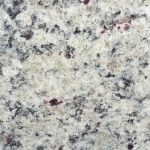
Dallas White Granite:The hot sale white granite in 2025
Atlantic Grey Quartzite:Unveiling the Power of 10: Mastering the Beauty of Atlantic Grey Quartzite in Interior Design Atlantic Grey Quartzite:Unveiling the Power of 10: Mastering the Beauty of Atlantic Grey Quartzite in Interior Design
